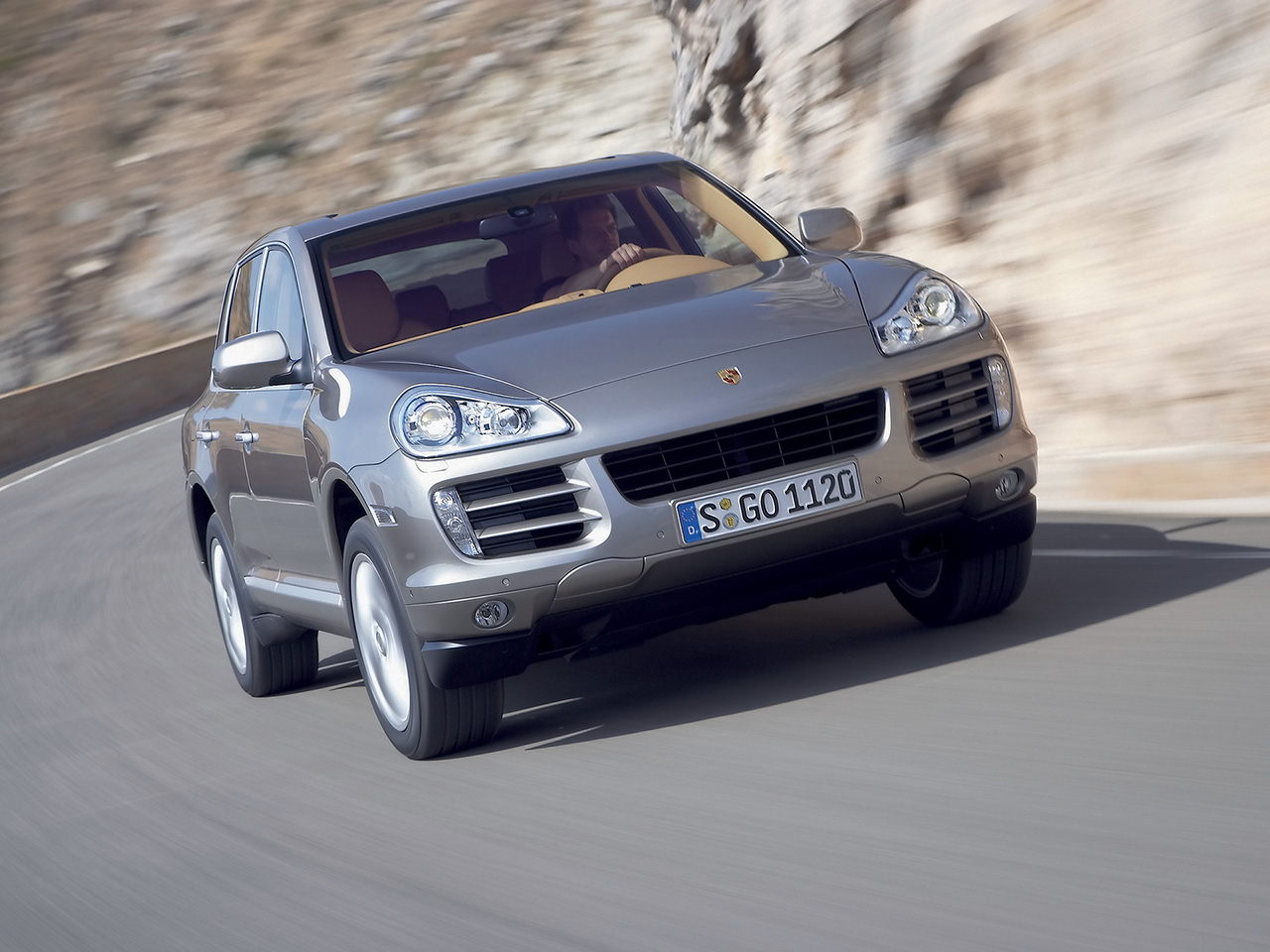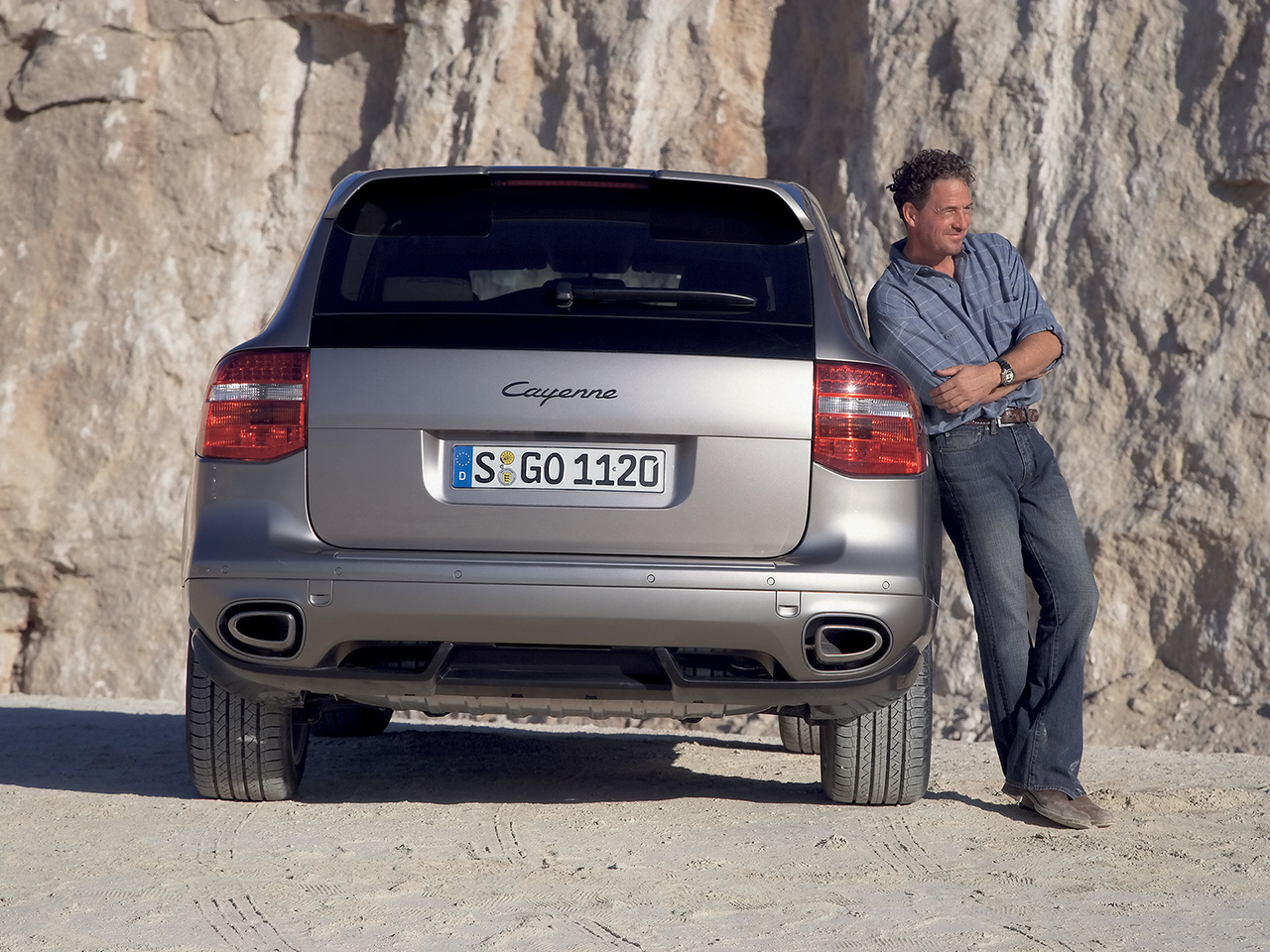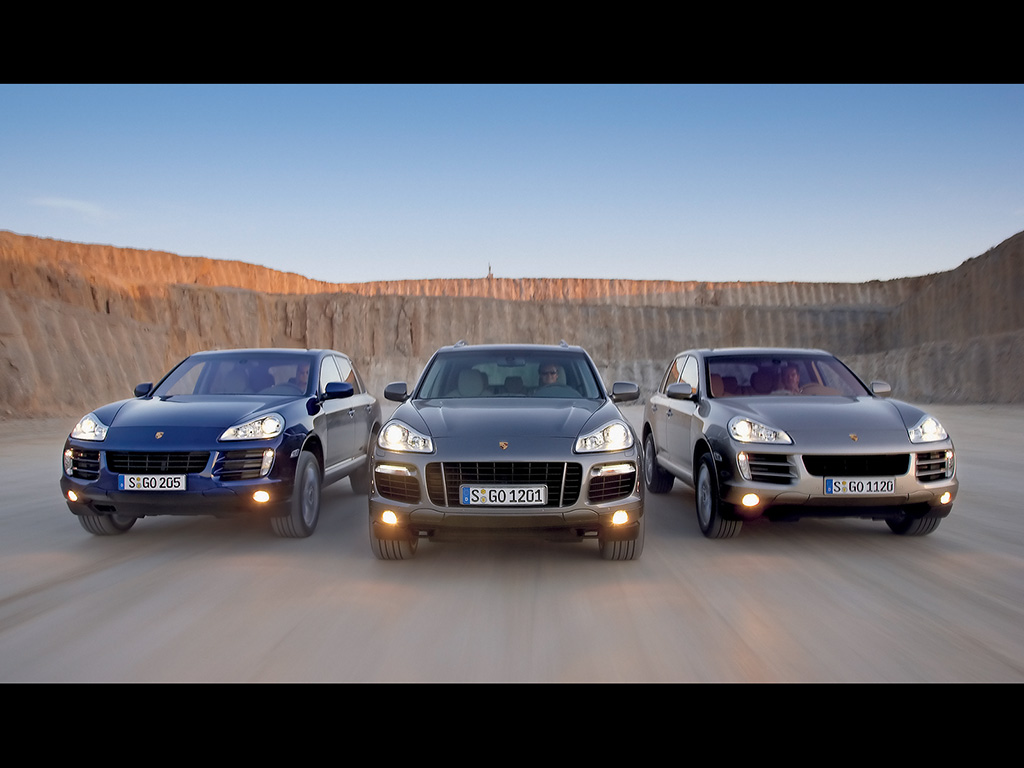2007 Porsche Cayenne
|
Price |
€108,617 |
Production |
-- | ||
|
Engine |
4.8 liter V8 |
Weight |
-- | ||
|
Aspiration |
turbocharger |
Torque |
516 lb-ft | ||
|
HP |
500 hp |
HP/Weight |
-- | ||
|
HP/Liter |
104.2 hp per liter |
1/4 mile |
-- | ||
|
0-62 mph |
5.1 seconds |
Top Speed |
171 mph |
(from Porsche Press
Release) The New Cayenne: More Performance, Less Consumption
Stuttgart. The Cayenne is starting a new chapter in its
success story: four years after the model’s launch, Dr. Ing. h.c. F.
Porsche AG of Stuttgart, Germany, is presenting the second
generation of its sporty SUV. The new, attractively designed
Cayenne, Cayenne S and Cayenne Turbo models have been given more
powerful, direct gasoline injection engines. These are known at
Porsche as Direct Fuel Injection (DFI), and they lower the fuel
consumption of individual models by over eight percent (NEDC). In
real driving conditions, savings of up to 15 percent are possible.
The new Cayenne will be in Porsche showrooms from February 24, 2007.
The basic version of this sporty SUV has a 40-bhp (29-kW) power
enhancement and is now driven by a 290-bhp (213-kW) six-cylinder
engine, the displacement of which has increased from 3.2 to 3.6
liters. The torque of the Cayenne has climbed from 310 to 385 Nm. It
can accelerate from 0 to 100 km/h in 8.1 seconds, reaching a top
speed of 227 km/h. The previous model managed 9.1 seconds and 214
km/h.
Thanks to new direct gasoline injection and the introduction of
VarioCam Plus valve control, the Cayenne S, now with an even bigger
4.8-liter, naturally aspirated V8 engine, produces a torque of 500
Nm (previously 420 Nm) and an output of 385 bhp (283 kW), an
increase of 45 bhp (33kW). These higher figures translate into a
0-100 time of 6.6 seconds and a top speed of 252 km/h. (Previous
model: 6.8 seconds and 242 km/h.) The performance figures for the
new Cayenne Turbo are also impressive, with an engine output 50 bhp
(37 kW) higher than that of its predecessor. The new eight-cylinder
engine, driven by a twin exhaust-gas turbocharger, produces 500 bhp
(368 kW) and 700 Nm (previously 620 Nm). This Turbo can race from
0-100 km/h in 5.1 seconds and has a maximum speed of 275 km/h.
(Previous model: 5.6 seconds and 266 km/h.)
As before, optimum power transmission is ensured by Porsche Traction
Management (PTM) which, in standard operating mode, distributes
engine power between the rear and front wheels in a ratio of 62:38.
The multi-disk clutch can direct up to 100 percent of drive traction
to the front or rear as required.
The Cayenne Turbo is fitted with Porsche Active Suspension
Management (PASM) with air suspension as standard. This variant can
now be augmented with the new Porsche Dynamic Chassis Control (PDCC)
roll stabilizer system. This constant roll control, also available
for the Cayenne and Cayenne S, limits vehicle roll on corners and
counterbalances it completely in almost all driving situations. The
Cayenne thus offers significant improvements in terms of handling,
directional stability and ride comfort. When off-road, the system
enables maximum axle articulation and improves traction.
Porsche Stability Management (PSM), with its brake assist function,
advanced trailer stabilization system and off-road ABS, comes as
standard on all Cayenne models. These functions improve the brakes’
reaction speed, markedly reduce the yawing which can affect vehicles
when towing, and optimize braking performance on loose ground.
What’s more, with static and, for the first time, dynamic bend
lighting, the bi-xenon headlamps fitted as standard to the Cayenne
Turbo increase active safety. The system, which can also be ordered
for the Cayenne and Cayenne S, is activated as soon a speed of three
kilometers per hour has been reached.
The Euro-base price for the Cayenne is 43,300 Euros, while for the
Cayenne S it is 55,800 Euros. The Cayenne Turbo is priced at 91,100
Euros. In Germany, the Cayenne costs 51,735 Euros, while the more
powerful S version retails at 66,610 Euros. The top model Cayenne
Turbo has a list price of 108,617 Euros (including 19 percent sales
tax and country-specific requirements).



